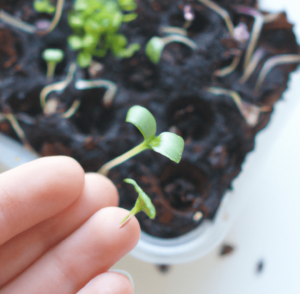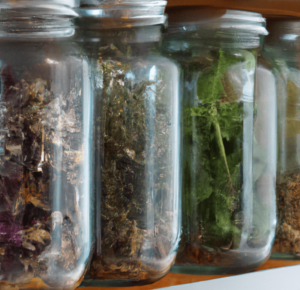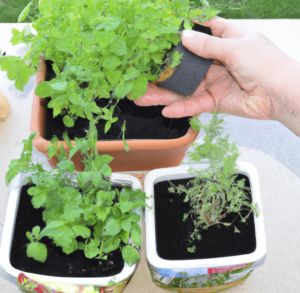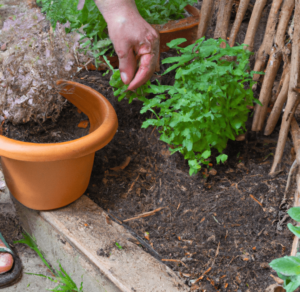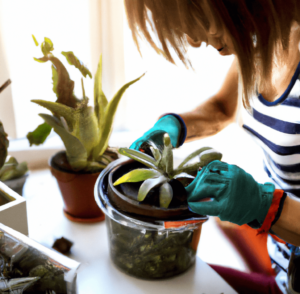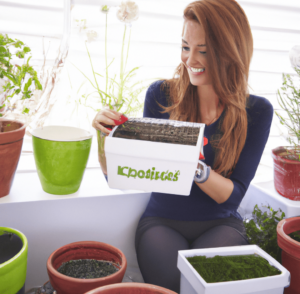Gardening is a rewarding hobby that allows you to connect with nature, relax, and enjoy the beauty of plants. Whether you are a beginner or an experienced gardener, there is always room for improvement. If you are looking to enhance your gardening skills, there are several strategies you can try. In this article, we will discuss the importance of research, learning about different plants, and visiting gardens for inspiration. By following these tips, you can become a more proficient gardener and enjoy the benefits of this fulfilling activity.
Gardening
Gardening is the practice of growing and cultivating plants, typically in a backyard or outdoor space. It can involve a range of activities, including planting seeds, watering and fertilizing plants, pruning and trimming, and controlling pests and diseases. Gardening can be a relaxing and therapeutic activity that allows you to get in touch with nature and nurture living things. It can also provide a sense of accomplishment and pride as you watch your plants grow and thrive.
Research
One of the key ways to improve your gardening skills is by conducting research. There is a wealth of information available online and in books about gardening, and it is important to learn as much as you can about the subject. Research can help you understand the best techniques for planting, watering, and caring for different types of plants. It can also provide insight into the specific needs of different plants, such as the amount of sunlight or water they require. By doing your research, you can ensure that you are providing the optimal conditions for your plants to grow and flourish.
Learn
In addition to researching gardening techniques and plant care, it is also important to learn about the plants themselves. Each plant has its own unique characteristics and requirements, and it is essential to understand these in order to provide the best care possible. Some plants may need more sunlight or water than others, or may be prone to certain pests or diseases. By learning about the plants you are cultivating, you can better understand their needs and provide the appropriate care.
Plants
There are countless types of plants that can be grown in a garden, ranging from flowers and herbs to vegetables and fruit trees. It is important to choose plants that are well-suited to your local climate and soil conditions, as well as to your personal preferences. You can research the specific requirements of different plants to determine which ones will thrive in your garden. It is also a good idea to consider the amount of space and time you have available, as well as your level of experience, when selecting plants for your garden.
Garden
In addition to researching and learning about gardening and plants, it can also be helpful to visit gardens and observe how they are designed and maintained. You can visit public gardens or seek out local community gardens to get ideas and inspiration for your own garden. You can also talk to other gardeners and ask for advice and tips. By visiting gardens and interacting with other gardeners, you can gain valuable insights and ideas for enhancing your gardening skills.
Hobby
Gardening is a fulfilling hobby that allows you to connect with nature and nurture living things. To improve your gardening skills, it is important to research gardening techniques and plant care, learn about different plants and their specific needs, and visit gardens for inspiration. By following these tips, you can become a more proficient gardener and enjoy the many benefits of this rewarding activity.
Improving Gardening Skills for Health Benefits
Gardening can be a rewarding and enjoyable hobby, and it can also have numerous health benefits. Researchers have found that gardening can improve physical strength and flexibility, reduce stress and anxiety, and even boost mental health. Additionally, gardening can provide access to fresh, healthy food, which can have numerous positive impacts on overall health and well-being.
There are many ways to improve your gardening skills, whether you are just starting out or have been gardening for years. Here are a few tips:
- Start small: It can be overwhelming to start a large garden all at once. Consider starting with a small patch or a few pots and gradually expanding as you become more comfortable.
- Research and plan: Before you start planting, take some time to research the plants you want to grow and how best to care for them. Make a plan for your garden, including which plants will go where and when to plant them.
- Get the right tools: Invest in high-quality tools that will make your gardening experience more efficient and enjoyable.
- Learn from others: Gardening is a social activity, and there are many resources available for learning from experienced gardeners. Consider joining a gardening group or club, or seek out online resources such as forums and blogs.
By following these tips and continuing to learn and grow as a gardener, you can improve your skills and reap the many health benefits of gardening.
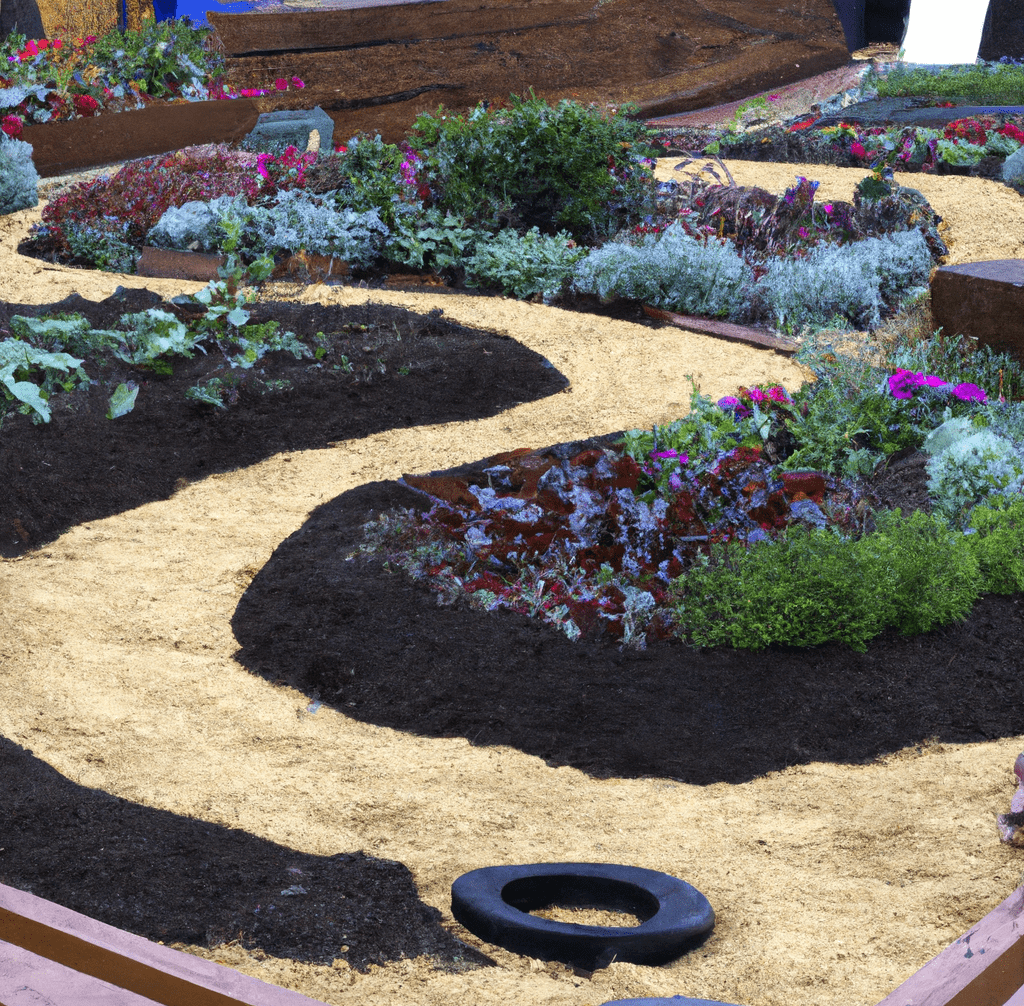
Skills: Gardening
Gardening is a skill that involves the cultivation and care of plants, flowers, and vegetables in a garden setting. It can be a rewarding hobby that allows you to learn about different types of plants, their growth habits, and how to care for them. Gardening can also be a great way to improve your research skills, as you may need to gather information about the plants you are growing, their preferred growing conditions, and any pests or diseases they may be prone to. Additionally, gardening can be a great way to improve your learning skills, as you can always be learning more about different plants and how to care for them. Overall, gardening is a skill that can bring you a sense of accomplishment, relaxation, and enjoyment.
The Importance of Article Research in the Classroom and Beyond
Articles are a vital source of information for students and researchers alike. They can provide valuable insights and knowledge on a variety of subjects, from academic topics to current events. Reading articles can satisfy our curiosity and feed our desire for learning, whether it be for personal or professional development.
In the classroom, articles can be used as a resource for research projects, assignments, and exams. They can also be a useful tool for stimulating critical thinking and discussion among students. Many academic websites, such as JSTOR and Google Scholar, offer a wide range of articles from peer-reviewed journals and other reputable sources.
In addition to their use in the classroom, articles can also be accessed on websites and other online platforms. These platforms often provide a more convenient and accessible way to find and read articles, making it easier for people to stay informed and up-to-date on various topics.
Overall, articles play a crucial role in the world of research and academia. They provide valuable insights and knowledge that can be used to further our understanding of the world around us and can be accessed by anyone with an internet connection.
Encouraging Children to Learn and Develop Skills through Gardening and Other Activities
Gardening can be a fantastic activity for children to learn and develop a range of skills. It provides an opportunity for them to learn about the natural world, gain an understanding of where their food comes from, and develop a sense of responsibility and pride in their own efforts. Gardening can also be a great way for children to get some physical exercise and fresh air.
In the garden, children can learn about the lifecycle of plants, from seed to harvest. They can also learn about the different types of vegetables, herbs, and flowers that can be grown, and how to care for them. Children can even participate in the planning and design of the garden, deciding what types of plants they want to grow and where they should be planted.
In addition to gardening, there are many other activities that can help children learn and develop new skills. Some ideas might include cooking, baking, arts and crafts, sports and physical activity, and music. Encouraging children to participate in a variety of activities can help them discover their interests and passions, and can also help them develop important skills such as problem-solving, creativity, and teamwork.
The Sense of Gardening: A Valuable Skill and Experience
Gardening is an activity that requires a strong sense of skill and experience in order to achieve the best results. Whether you are an experienced gardener or just starting out, developing a sense for gardening can greatly improve your success with plants. This sense comes from a combination of knowledge, observation, and intuition, and it helps you understand the needs of your plants and make the right decisions for their care.
Gardening requires a keen understanding of plant care, including factors such as watering, sunlight, soil, and pests. With experience, you can learn to recognize the signs of a healthy plant and identify any problems that may arise. You can also develop a sense for when to plant and harvest your crops, and which techniques and methods work best for your specific garden.
Having a sense for gardening can also help you achieve better results with your plants. By understanding the needs of your plants and taking the necessary steps to care for them, you can improve their growth and health. This can lead to a more productive and successful garden, with a greater yield of fruits, vegetables, and flowers.
Overall, the sense of gardening is a valuable skill that can be developed through experience and observation. By honing your sense for gardening, you can become a more successful and efficient gardener, with healthier and more productive plants.
Improving Gardening Skills to Reduce Stress
Gardening can be a great way to reduce stress and improve mental health. It allows you to connect with nature, engage in physical activity, and create something beautiful. If you are new to gardening or have limited experience, there are a few steps you can take to improve your skills and make the experience more enjoyable.
First, take some time to research different gardening techniques and strategies. This can help you understand the basics of soil preparation, plant selection, and maintenance. There are many resources available online or at your local library, including books, videos, and websites.
Next, consider taking a class or workshop on gardening. Many community centers, botanical gardens, and other organizations offer classes for beginner gardeners. These classes can provide hands-on experience and guidance from experienced gardeners.
Finally, consider joining a gardening club or community group. These groups can provide support, tips, and resources for gardeners at all levels. You can also find gardening buddies who can help you learn new skills and share the joy of gardening with you.
Overall, by taking the time to learn about gardening and improving your skills, you can enjoy the stress-reducing benefits of gardening to the fullest.
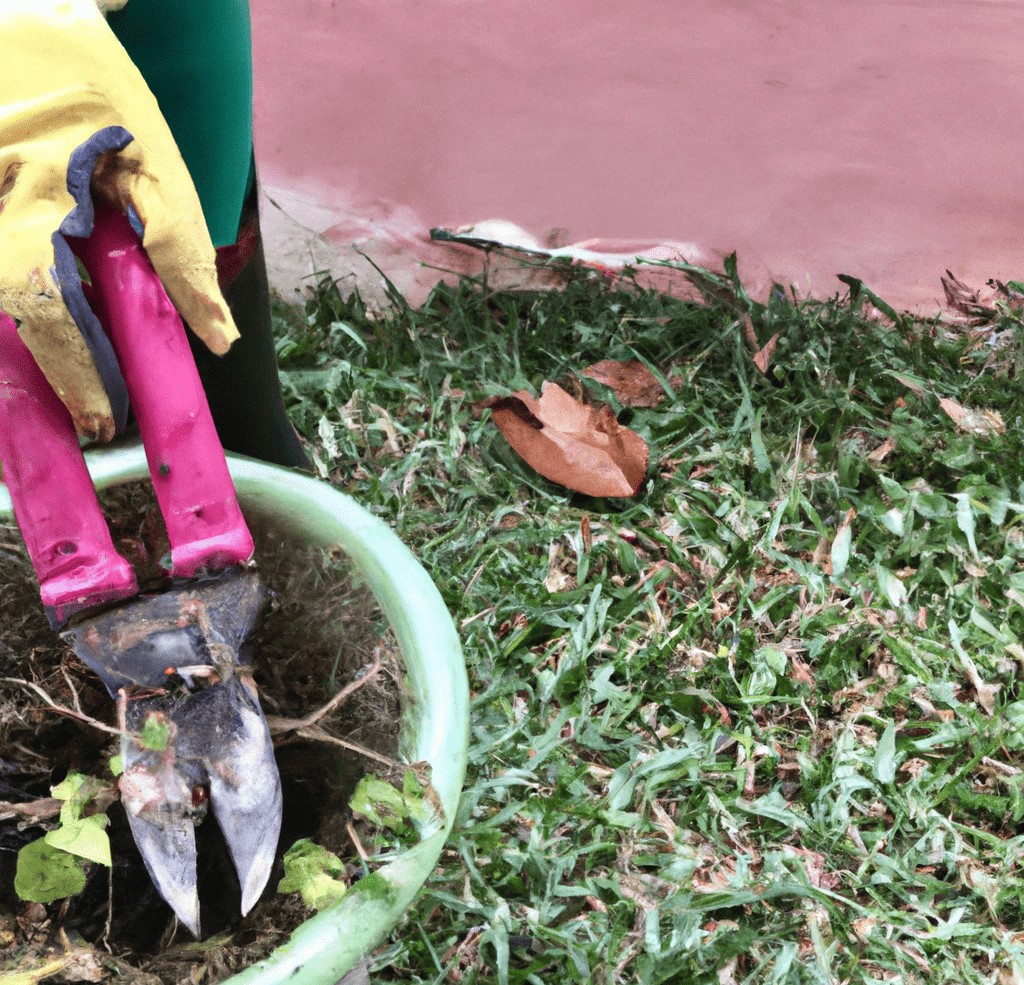
The Importance of Family in Child Development
Research has shown that the family plays a significant role in the development of a child. The environment and interactions within the family can have a lasting impact on a child’s physical, emotional, and cognitive development.
One way in which the family influences a child’s development is through the provision of basic needs such as food, shelter, and love. The family is responsible for ensuring that a child has access to nutritious food, a safe and stable living environment, and emotional support. These foundational needs are essential for a child to grow and thrive.
In addition to meeting a child’s basic needs, the family also plays a crucial role in the socialization and education of a child. Parents and siblings can serve as role models, teaching children about values, norms, and expectations. The family can also provide opportunities for children to learn and explore their interests and passions.
Overall, the family plays a vital role in the development of a child. It is important for parents and caregivers to be mindful of the impact they have on their children and to strive to create a supportive and nurturing environment for them to grow and thrive.
Teaching Gardening as a Life Skill
Gardening is a valuable skill that can provide a lifetime of enjoyment and practical benefits. Not only can it provide a source of fresh, nutritious produce, but it can also improve physical health, mental well-being, and environmental sustainability. Teaching gardening as a life skill can be a rewarding experience for both the teacher and the learner.
There are many different approaches to teaching gardening, ranging from formal educational programs to informal hands-on learning experiences. Some options include taking a gardening class at a local community center or adult education program, joining a gardening club or group, or simply starting a small garden at home with the guidance of an experienced gardener.
No matter what approach is taken, it is important to remember that gardening is a skill that requires patience, persistence, and a willingness to learn. By providing a supportive and engaging learning environment, teachers can help students develop their gardening skills and foster a love for this rewarding hobby.
The Importance of Seed Selection in Gardening
Gardening is a skill that requires careful planning and attention to detail. One important aspect of successful gardening is selecting the right seeds for planting. The type of seeds you choose can greatly affect the success of your plants and the overall outcome of your garden.
Experience is a valuable asset when it comes to seed selection. As you gain more experience in gardening, you will learn which seeds are best suited to your specific climate, soil type, and growing conditions. You will also learn about the various characteristics of different plant varieties, such as their growth habits, pest and disease resistance, and flowering or fruiting patterns.
When choosing seeds, it is important to consider the maturity date of the plants, as well as the amount of sunlight and water they will need. You should also consider the purpose of the plants, whether they will be used for decorative purposes, as a food source, or for medicinal purposes.
Overall, the right seed selection is an essential aspect of successful gardening, and can greatly contribute to the success of your plants and the overall enjoyment of your gardening experience.
Learning Gardening: Research and Activities to Develop a New Skill
Gardening is a rewarding hobby that offers a number of benefits, including the opportunity to learn new skills and connect with nature. Whether you are a beginner or an experienced gardener, there are always new things to learn and techniques to improve upon. Here are a few suggestions for how to get started learning about gardening:
- Research: The first step in learning about gardening is to do your research. This can include reading books and articles about gardening, watching videos or taking online courses, and talking to other gardeners. Look for information on the specific plants you are interested in growing, as well as general gardening techniques and strategies.
- Activities: There are many hands-on activities you can do to learn about gardening. These might include visiting local botanical gardens or greenhouses, joining a gardening club or group, or participating in a community garden. You can also try starting a small garden of your own and experimenting with different plants and techniques.
- Practice: The best way to improve your gardening skills is to practice them. Start small and work your way up to more complex projects. As you gain experience, you will become more comfortable with different gardening techniques and be able to tackle more challenging tasks.
With a little research, practice, and persistence, you can learn the skills needed to become a successful gardener. Whether you are interested in growing vegetables, flowers, or both, gardening can be a rewarding and fulfilling hobby.
The Importance of Plant Science in Gardening and Horticulture
Plant science, also known as botany, is the study of plants and their functions and characteristics. Gardening and horticulture are practices that utilize plant science in order to cultivate and care for plants, often for the purpose of producing healthy food.
Gardening and horticulture not only improve the aesthetic value of an area, but they also have numerous benefits for both individuals and the environment. For example, growing your own fruits and vegetables can provide access to fresh, healthy food, and the act of gardening itself can be a relaxing and enjoyable hobby. Additionally, gardening and horticulture can improve air quality, provide habitat for wildlife, and help to conserve water.
Overall, the study and application of plant science in gardening and horticulture is vital for the production of healthy food and the promotion of a healthy and sustainable environment.
Bottom Line: Improving their Gardening Skills is Rewarding to Oneself
To improve their gardening skills, someone should conduct research to learn about gardening techniques and plant care, understand the unique characteristics and requirements of different plants, and visit gardens and interact with other gardeners for inspiration and ideas. By following these strategies, they can become a more proficient gardener and enjoy the many benefits of this rewarding hobby.
If you’re interested in how does someone improve their gardening skills, you may also be interested in what factors make someone good at gardening and do they teach gardening in school.


